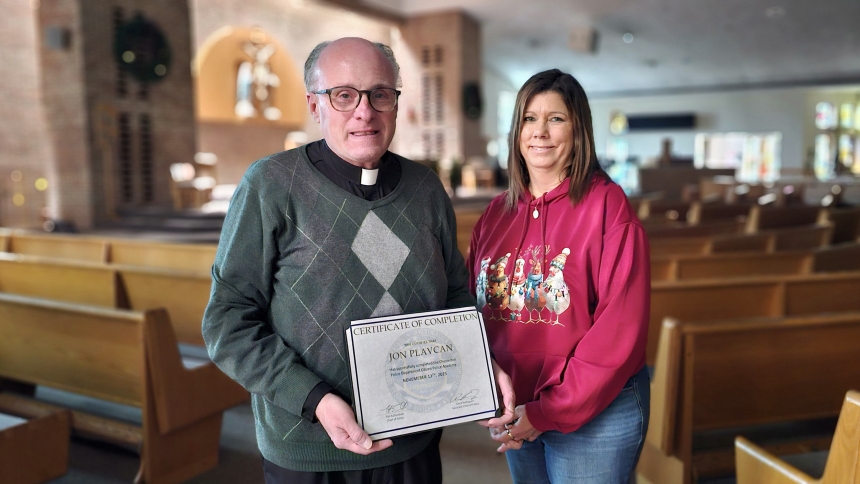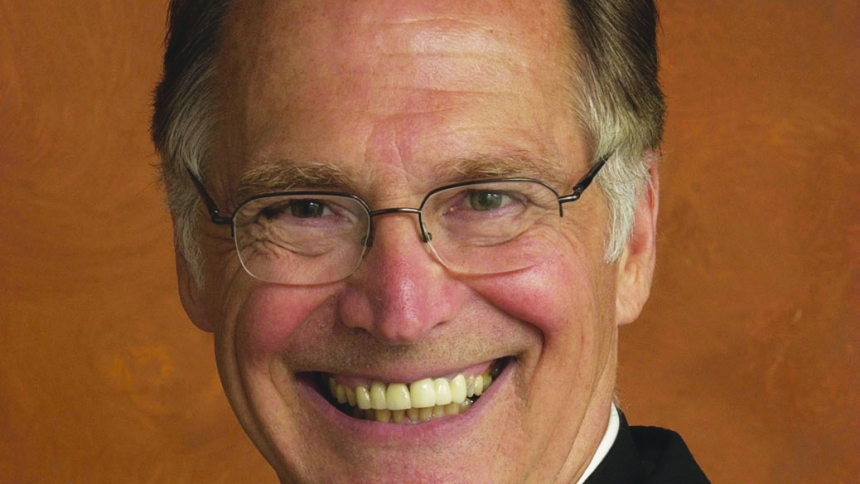
NEW ORLEANS (OSV News) - When Thomas Neal, a professor of spiritual theology at Notre Dame Seminary in New Orleans, reflects on the history and traditions of Lent, he sees a religious tapestry woven across the millennia: The prayer, fasting and almsgiving that had their roots in Jewish life before the birth of Christ have become -- 2,000 years later -- a staple of Christian life in the 40 days before Easter.
And, to be sure, Neal said, Lenten practices are not exclusively for Catholics.
"From the very beginning, prayer, fasting and almsgiving have been a normal part of Christian life or Jewish life," Neal said. "Those are the three pillars of Jewish spirituality that became the three pillars of Christian spirituality."
The practice of fasting before Easter dates probably to the second century, Neal said, but became more formalized as a 40-day period of fasting when it was promulgated by the Council of Nicaea in 325.
"It was modeled on the 40 days Jesus spent fasting in the desert after his baptism in the Jordan River by John the Baptist," Neal said. "That 40-day period eventually became the standard."
It was important to the early church that Jesus prepared for his public ministry with the 40-day fast, Neal said.
"The Catholic Church sees this as a pattern," Neal told the Clarion Herald, newspaper of the Archdiocese of New Orleans. "Anything that Jesus does in his life and ministry sets a pattern for the church."
In a theological sense, Jesus' 40 days in the desert echoed the Israelites' history of passing through the Red Sea and then wandering for 40 years in the desert before reaching the Promised Land, Neal said.
"Israel is tempted in the desert and fails, over and over again -- the Israelites grumble, they rebel," Neal said. "Jesus also goes into the desert to face temptation, but he does not succumb to temptation. He is victorious. That fasting allows him to experience the weakness of human flesh, the weakness of human beings, but yet not to be conquered by it. Jesus doesn't begin to do his redemptive work of healing and driving out the devil until he has confronted Satan himself directly and conquered him."
By comparison to today's standards, the Lenten fast of the early Christians was far more rigorous in that it included abstaining from all meats, including fish, and from dairy products and even eggs.
"So, basically, they were like vegans," Neal said. "Then, over the centuries, there were permissions given to lessen the intensity of the fasting when it would become difficult for people to maintain that over time."
The current requirements for Catholics (between the ages of 14 and 59) on the Fridays of Lent are to abstain from red meat and chicken and then also fast by eating only one full meal on Ash Wednesday and Good Friday.
Many may not realize, Neal said, that outside of the U.S. Catholics are still asked to steer clear of eating meat on the Fridays outside of the season of Lent.
"The United States is one of the few places in the world that got permission to be excused from the requirement to not eat meat on Fridays, but when the U.S. bishops got permission to do that, they didn't eliminate penance on Fridays," Neal said. "They simply gave permission for Catholics to choose their own form of penance on every Friday of the year. Fridays were always considered days of penance because they commemorate the Lord's passion."
But, why did abstaining from meat become the standard penance?
"The idea is that fasting should exclude all of what you might call 'luxury' foods – any foods that you would consider not necessary for the basic sustaining of life," Neal said. "Meat would have been considered a luxury. Right now, it's vastly easier to obtain meat and much less expensive than it would have been in the ancient world. The idea is that you are eliminating all the luxuries of life and bringing yourself down to a level of poverty and simplicity so that you sense a greater dependence on God and a willingness to detach yourself from things that are not absolutely necessary for you."
Protestant traditions -- particularly those such as Anglicans, Presbyterians and Methodists that have more liturgical practices - celebrate Lent from Ash Wednesday to through Holy Thursday. Neal said some Evangelical denominations have also appreciated "the sort of spiritual discipline Lent brings into preparing for Easter," but he says some "probably are more nervous that by doing these forms of penance, they are 'earning' heaven. There can sometimes be a distorted view of how we view Lent."
Father Jeffrey Montz, spiritual director at Notre Dame Seminary, said ascetical practices "aren’t exclusive to Christianity and have their roots outside of Christianity."
"This is one of the consistent marks of religions -- that there are ascetical practices, which is just a form of discipline to be able to help us develop good habits," Father Montz said. "The word we would use in Christianity is 'virtue,' but it’s that recognition that we need habitual practices to be able to develop a good habit. Pagan cultures -- Rome, the Greeks -- even have examples of ascetical practices. We also find this outside the Greco-Roman world in Asian cultures."
In seafood-rich south Louisiana, of course, giving up meat on Friday is hardly a sacrifice, which leads Father Montz to ponder what kind of fasting might lead to a greater purpose.
"Even though we tend to rather exclusively focus these penitential practices on food, there are other ways we can practice penance apart from only eating," Father Montz said. "I think now it's probably harder for people to go on a social media fast. Giving up Facebook for Lent might be more difficult than actually eating only fish. Finding those things that maybe we are oversaturated with and being able to perform a certain discipline in our habits with those things can be a greater challenge than saying, 'Oh, all I can eat is seafood.'"
Neal echoes those remarks. Every Lent, he tries to "fast from the noise, from the sound" of the world.
"I try to have more quiet time, so I don't listen to music in the car and I don't turn on the radio in the car," Neal said. "I put my phone on black-and-white. I take my apps off to try to simplify my life. It also helps me realize where I'm attached, because when I stop using these things, I can feel them. I didn't realize how addicted I was to them until I tried to take them away."
When Neal's children were at home, he and his family focused on almsgiving by feeding the homeless twice during Lent, praying the Stations of the Cross every Friday and also making a secret fasting promise that no one else knew about.
"It's almost like a Secret Santa kind of thing," Neal said. "Each of us would make a commitment to choose one penance that we would take on and not tell anyone about. It was between us and God. We'd write it on a piece of paper and put it in a little basket in our prayer room at home. I always thought that was very special."


